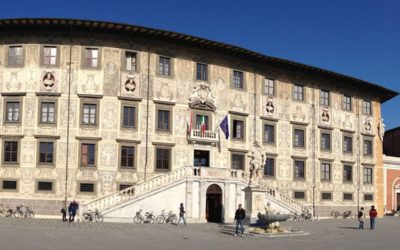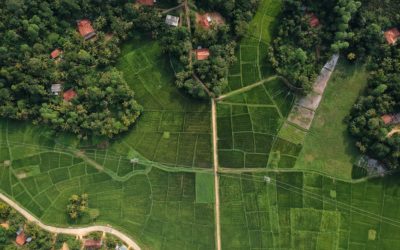cartif projects
SPANDAM
Spanish Demographic Dynamics Assessment Model
Description
Development of a simulation tool to support decision-making and the design of public policies aiming to achieve a balanced and sustainable demographic, socioeconomic and environmental development in areas affected by depopulation, capabe of counter the current reality of the demograhic imbalances in Spain.
Through the development of simulation models, the tool will evaluate the long-term effects over time of public policies and private initiatives on local development indicators and on the attractiveness of the area to retain resident population and attract new migrants or potential investors. This will allow understanding the structural causes of depopulation and local development.
It is aimed at experts and advisors in private consultancies and public agencies and institutions providing policiy advice to governments.
Objectives
- Analyze the structural causes of demographic and migratory dynamics for different geogrpahical areas of Spain by building computer simulation models.
- Research on developing user-oriented tools to project population scenarios in the selected geographical areas of Spain and their associated socioeconomic variables based on historical trend, policy measures and private initiatives adopted and the scenarios at the national level.
- To evaluate the methodology in 5 representative case studies in Spain.
Actions
- Compilation of multi-sectoral data and public policies and private initiatives for fixing population.
- Development of combined attractiveness indicators for residents and investors.
- Development of a set of possible scenarios and of the local modelling structure.
- Aplication of the methodology in the case studies.
- Development of the final tool.
- Creation of the Advisory committee and collection of stakeholders advise and requirements.
Expected Results
- Data infrastructure.
- Catalogue of public and private policies aiming at fixing population.
- Combined indicators of attractiveness for residents/investors.
- Local models in system dynamics and projections of the main demographic variables and local development indicators.
- Specific analysis in the case studies and policies recommendations to adopt the pursued local development objectives.
- Final tool for the simulation of policies.
Partners
Strategic lines in R&D, in public – private collaboration 2021
CARTIF Total Budget: 210,025.96 €
CARTIF Grant: 210,025.96 €
Duration: 11/2021 – 10/2024

“The client receives funding from the Ministry of Science and Innovation with NextGeneration funds through the Statal Plan of Scientific, Technic and Innovation Research”

Responsible
Noelia Ferreras
Networking
Energy policies projects:
CLIMRES
CLIMRES aims to foster a ‘Leadership for Climate Resilient Buildings’, by addressing the identification and systematic categorisation of buildings’ vulnerabilities and estimating their impact in the buildings’ ecosystem considering the interlinkages within the urban context.
THUNDER
THUNDER project aims to overcome existing barriers hampering a wide adoption of DCs waste heat recovery strategies, providing an innovative, efficient and cost attractive Seasonal Thermal storage based on Thermochemical Materials
SCO2OP-TES
SCO2OP-TES focuses on the development of technologies for storing electricity in the form of heat, which is then converted back into electricity (P2H2P – power-to-heat-to-power).
HYDRA
HYDRA focuses on understanding and addressing the potential impact of widespread hydrogen use on climate, environment and society. The project assesses a scenario of high hydrogen penetration in the energy mix.
INHERIT
The overall vision of INHERIT is to create a systematic methodology, accompanied by leading-edge Information and Communication Technologies (ICTs), such as Internet of Things (IoT), Artificial Intelligence (AI) and (big) data analytics, and associated social/behavioural practices, towards sustainable, inclusive and resource-efficient Cultural Heritage (CH) solutions.
IAM COMPACT
IAM COMPACT supports the assessment of global climate goals, progress, and feasibility space, and the design of the next round of Nationally Determined Contributions (NDCs) and policy planning beyond 2030 for major emitters and non-high-income countries.
BUILDSPACE
BUILDSPACE aims to couple terrestrial data from buildings with aerial imaging from drones equipped with thermal cameras and location annotated data from satellite services to deliver innovative services for the building and urban stakeholders and support informed decision making towards energy-efficient buildings and climate resilient cities.
ECOESION_TOOL
The main objective of Ecoesion_tool project is the implementation of a web-based, easy-to-use and user-friendly tool based on the Ecoesion model developed by the University of PISA (UNIPI)
NEVERMORE
NEVERMORE will support excellence in climate research overcoming the current approach in evaluating climate change impacts and risks across sectors and adaptation and mitigation policies and measures.
PACES Logroño
The aim of the project is the preparation and elaboration in the framework of the Deal of Majors for the Climate and Energy, of the Plan of Action for the Climate and Energy Sustainable of the municipality of Logroño.
RethinkAction
Development of a cross-sectoral decision-making platform to foster climate action, focusing on climate mitigation and adaptation.
RENERMap
The main objective of RENERMap is to achieve a detailed analysis of the renewable potential available at local level, including both roofs and municipality land, to respond to the demand of energy that it generates, and to help to achieve the development of self-sufficient energy municipalities.
EACC_Extremadura
Extremadura Strategy for Adaptation to Climate Change 2021 – 2030 aims to analyse the influence of climate change on the Autonomous Community of Extremadura , identifying impacts, risks and climate vulnerabilities on the main strategic sectors of the region.
e-PARCERO
ePARCERO project will develop an automated prototype that allows the identification of cadastral parcels without current use in demonstrators located in relevant areas of Castilla y León, taking into account the different conditions that may affect each parcel.
BUILTHUB
BUILTHUB aims to develop a strctured and inclusive reliable data collection approach on the EU building stock, as well as an easy to access & use datahub, in the shape of a strctured web-based platform.
EACC Val
EACC Val project aims to analyze the influence of climate change on the municipality of Valladolid, identifying climate risks and vulnerabilities and proposing actions that affect its future climate adptation.
LOCOMOTION
LOCOMOTION will design a set of IAMs that will provide politicians and other stakeholders with assessment tools to analyze the feasibility, effectiveness and costs of the different sustainability policies and strategies.
ELISE Energy Pilot
The aim of the ELISE action is to promote a coherent and consistent approach to the sharing and reuse of location data across borders and sectors.
CCliMAP
The CCliMAP project has the general objective of providing resources and instruments to aid decision-making for the reduction of greenhouse gases
TEC4ENERPLAN
The main objective is the development of advanced methods for energy planning at different scales (building to region), that support the development of tools. It will offer a working basis to those entities responsible of the generation, deployment and evaluation of energy actions aimed at the compliance with the energy efficiency objectives 2020–2050

























